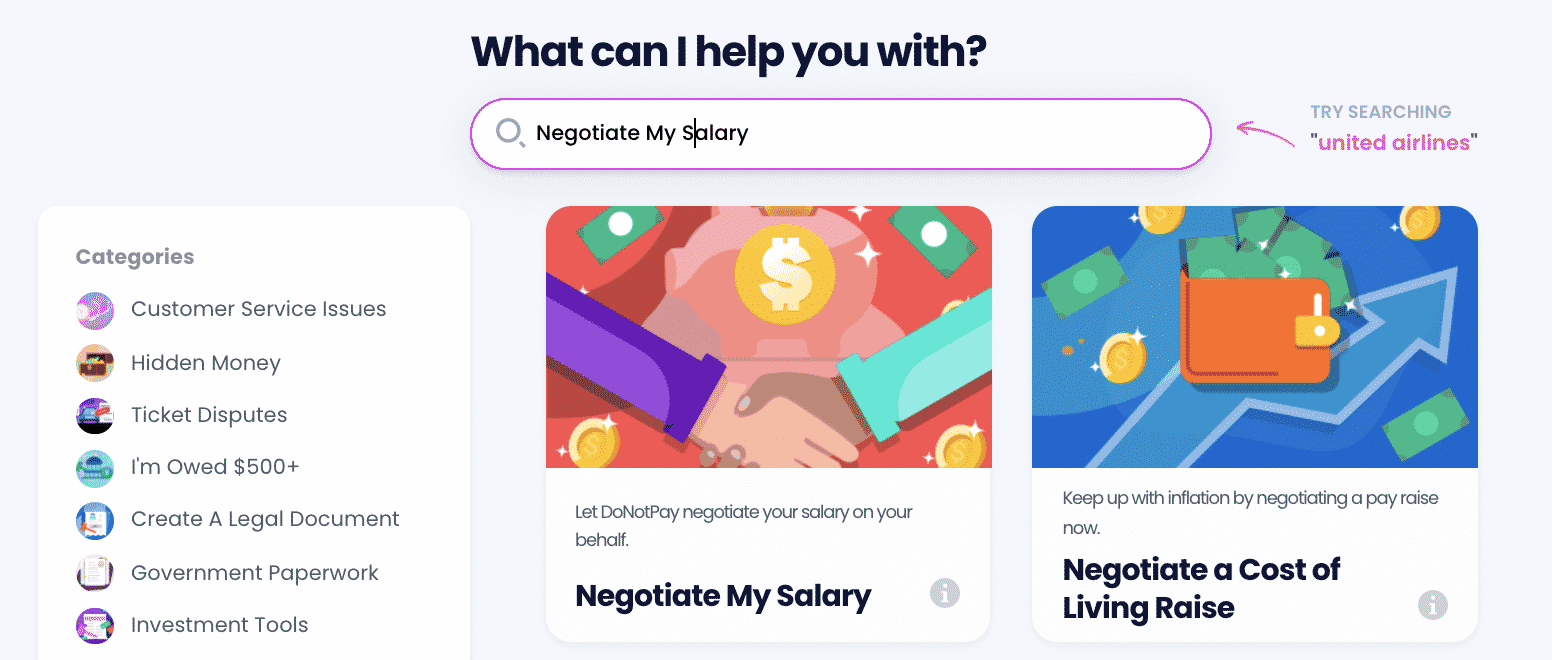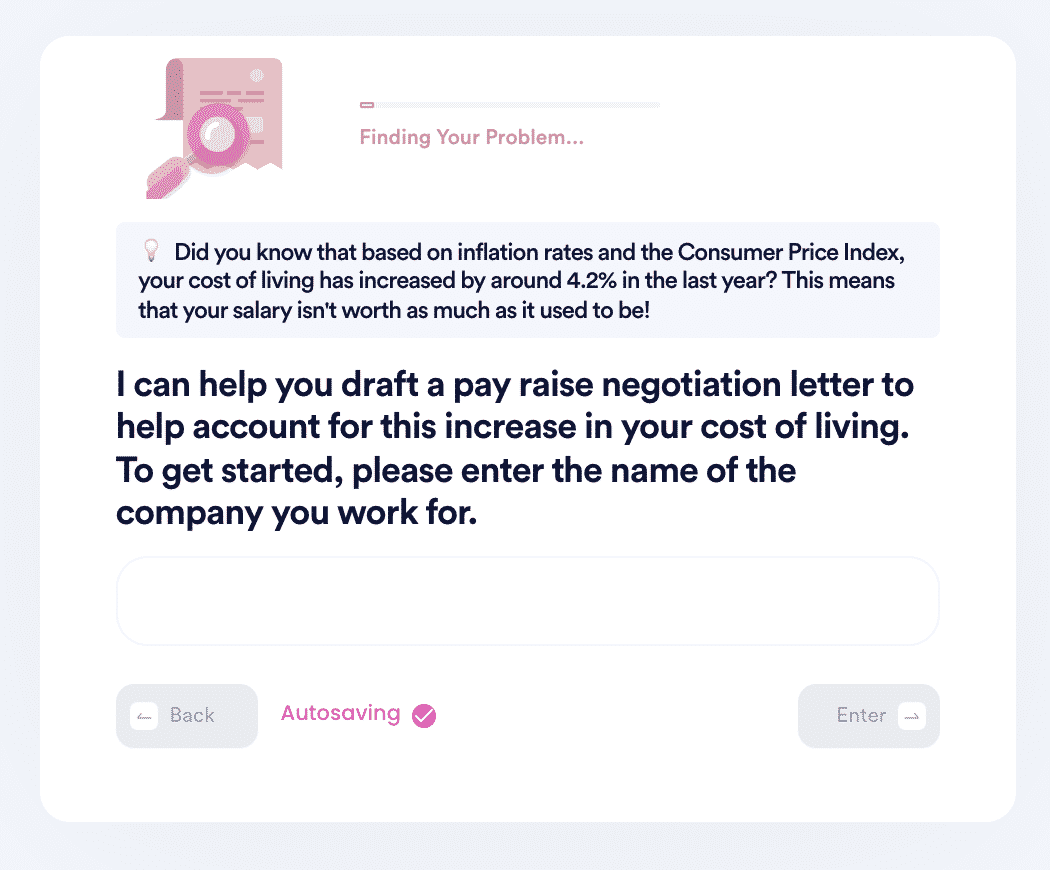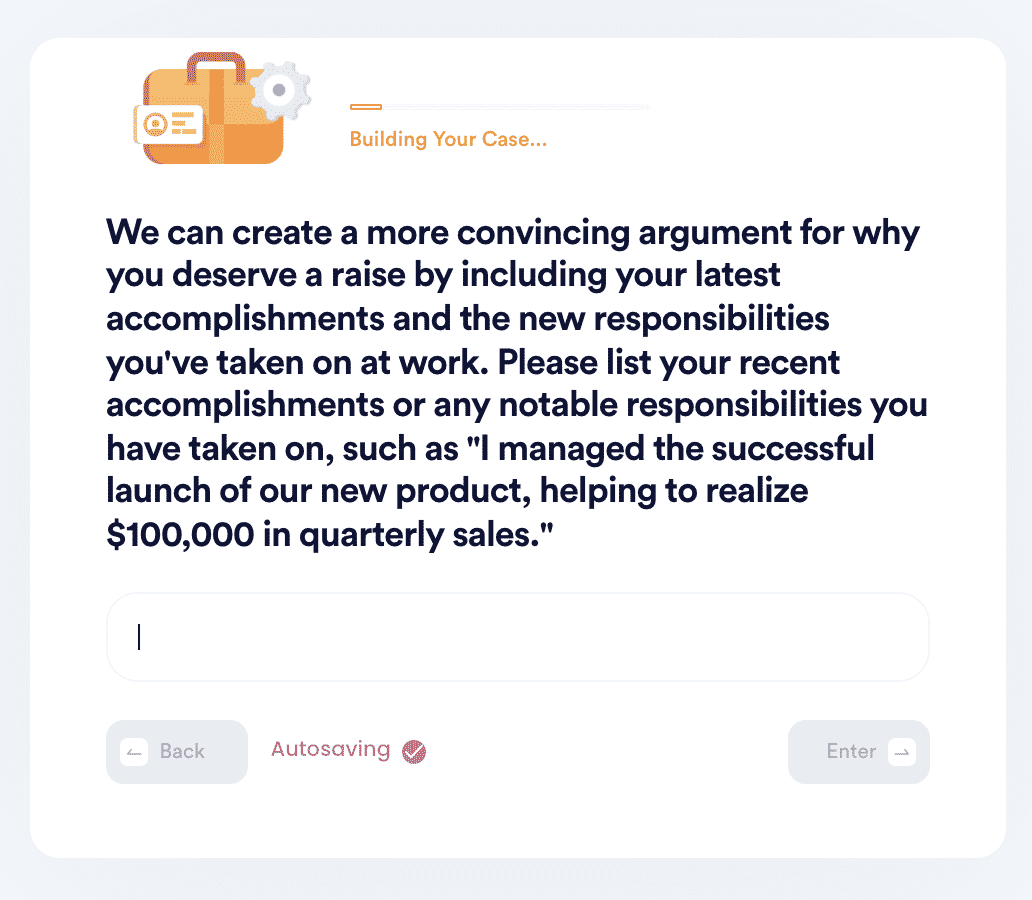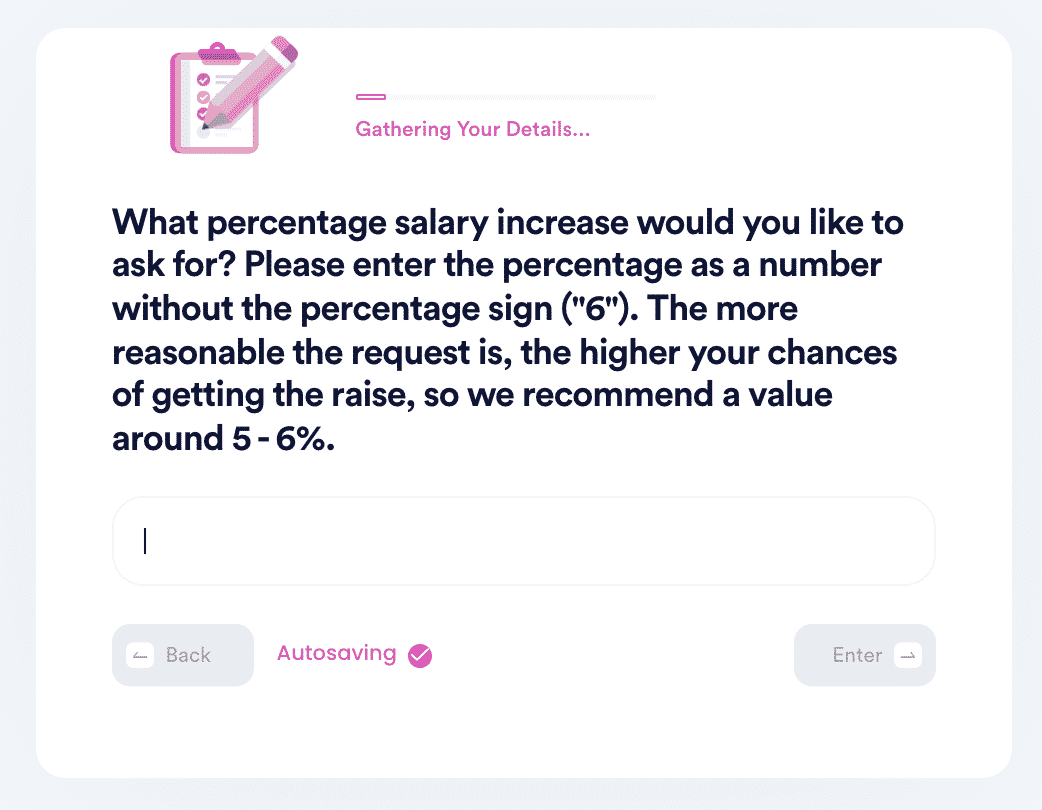Temp To Hire Salary Negotiation Hacks You Must Know
Money is what pays for the rent, food, gas, and other necessities in our daily lives. Getting a new job can be exciting for many reasons, but especially when it comes to the possibility of getting paid more than your last job gave you. What if your next job doesn't offer what you were expecting though? How can you
Don't worry if you're not sure how you should go about negotiating your salary; DoNotPay can help. Instead of having to figure out what to say to your employer on your own, DoNotPay will generate a salary negotiation letter based on your qualifications, experience, and achievements to give to your employer and, hopefully, get the raise you deserve.
How Do You Negotiate a Salary as a Temp to Hire Employee?
Typically, you won't be able to negotiate your salary when you're working as a because you get paid through the staffing agency that employed you. You won't receive all the benefits of a full-time employee either, but a lot of companies hire through temp agencies to find new talent for their company. Once you've proven to be qualified for the position, you may be allowed to become a full-time employee of the company you were working for. This is when you can try to negotiate your salary. Negotiate your salary as a temp to hire an employee:
| See what the average salary is in your area | This can differ depending on the field you work in, but can still be extremely helpful in securing a higher salary than you were initially offered. |
| Present your qualifications and prepare an argument | Why do you think you deserve a higher salary? What skill sets are you bringing to the company? Make an argument that provides your side of the story, and why you should get paid a certain amount. |
| Consider the benefits being offered as a full-time employee | When you transition into a full-time position, you're typically offered more benefits than the temp agency provided, such as health insurance, dental, paid vacation, and sick days. Sometimes it isn't worth potentially making a bad impression on your employer for a higher salary when the benefits of the position are amazing. |
| Start negotiating with your employer | Present your case to them, and start the negotiation with the highest salary you hope to get. This gives more room for you to obtain a salary you're willing to settle with. |
Only settle on a salary that feels right for you. You need to be able to afford necessities, and it's nice to have a little extra spending money or money to put into savings. Living paycheck-to-paycheck is never a fun thing to do.
How Often Should You Get a Raise?
Most companies will give their employees a raise at the end of every year, sometimes called an inflation pay raise, or it may be a raise due to an employee having an extra year of experience with the company. This can't always be expected though, as some companies are quite stingy with their money. In that case, you will need to make an argument to obtain an increase in your salary. You should also get a raise any time you're promoted within the company. If you don't get one, then you're just doing more work for the same amount of money. If a company knows they can take advantage of an employee, they often will so make sure you know what you're getting into.
How Not to Ask For a Raise
While it can be tempting to use choice words for a boss who won't listen to you, it's not the best idea when it comes to asking for a raise. There are several things you should never do when asking for a raise, and you may be surprised to hear some of them.
How to not ask for a raise:
- Don't act entitled to the raise. Even if you think you're extremely deserving of a raise, your employer likely won't take kindly to it if you come into their office with an attitude. You may not realize you have one either, so be careful about how you approach the situation.
- Never compare yourself to your co-workers. Don't talk about how you make less than your co-worker, do more work than them, or arrive on-time more often than they do. It doesn't paint a good picture of yourself to your boss.
- Don't get personal. While it's great to have a relationship where your boss genuinely cares about your wellbeing, it might not be what it takes to get a raise. It's best to avoid talking about personal at-home situations when asking for a raise.
- Don't threaten to quit if you don't get a raise. Even if it's not a bluff, it's not something you should put out there right away. If your boss isn't willing to give you the raise you deserve, go ahead and accept the job that pays more. Don't use it as an ultimatum.
Negotiate Your Salary With DoNotPay
DoNotPay can help you draft a letter to give to your employer and make your case for a higher salary. Negotiations are hard, but they don't have to be as difficult as they're often made out to be. Instead of worrying about what you're going to say on your own, pass off the hard work to DoNotPay before you go in for negotiations. All you have to do is:
- Search "negotiate my salary" on DoNotPay.

- Enter the name of your company and the industry you work in, so we can find the right wage statistics for your role.

- Answer a series of questions regarding your qualifications and achievements, relocation expenses, and other job offers if applicable.

- Enter the new base salary you would like to request.

And that's it! Once the information is finalized, DoNotPay will generate an official salary negotiation letter that you can then email or present to your employer!
What Else Can DoNotPay Do?
DoNotPay can do almost anything you can think of, even more things relating to salary negotiations. They can also help you negotiate your salary over the phone or through email. Aside from salary negotiations, DoNotPay can help with a lot of other things too, including:
- Canceling subscriptions
- Reducing property taxes
- Fighting workplace discrimination
- Chargebacks, and refunds
DoNotpay can also help you with:
As well as anything else you need help with. Don't go into a negotiation meeting unprepared; get help from DoNotPay.


